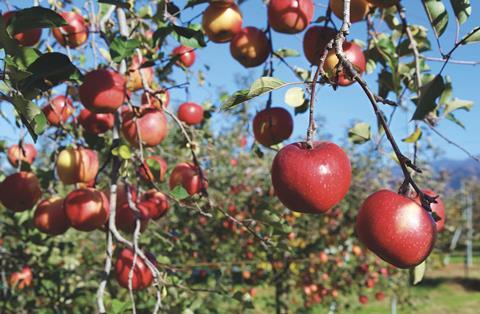Chile consolidates its position as the main supplier as Argentina continues to lose ground

Apple prices in Europe have reached record levels during the first half of 2025, as the market experiences an atypical campaign caused by low European production and recovering demand, according to analysis from the European Commission’s Directorate-General for Agriculture and Rural Development.
It shows that the prices achieved by local apple producers in European markets during the month of June not only far exceeded those recorded during the same period last year, but also broke the average of the previous five years. The same trend was observed with imported apples, leading to significant growth in purchases from third countries.
“This extraordinary situation stems from two fundamental causes: low apple production in Europe and a demand that, albeit gradually, has begun to recover,” the report states.
“The first determining factor was a significant drop in production levels across virtually all of Europe. The last fruit-growing season was marked by adverse weather conditions, health problems on farms, and lower yields in both quantity and quality. This negative combination immediately resulted in a decrease in stocks accumulated during the first half of the year, which put pressure on local market supply levels.
The shortage of fruit forced European operators to turn to the international market. According to report, apple imports during the 2024/25 season (from August to June) totalled 238,000 tonnes. This figure represents a year-on-year increase of 13 per cent. However, compared to the average of the last five campaigns, it is down 9 per cent, reflecting market volatility and the complexity of the current situation.
Among the main exporting countries, Chile has established itself as the most important supplier to the EU this season with a volume of more than 58,100 tonnes. South Africa ranked second with shipments of 36,800 tonnes.
By contrast, Argentina failed to appear among the main suppliers to the European market, reflecting the country’s loss of competitiveness, higher costs, lack of new varieties, exchange rate fluctuations, and internal production problems. As a result, Argentine apples have been losing ground in European markets, leaving the field open to their regional competitors.
According to the report, the price paid for imported apples during the month of June 2025 reached €1.32 per kilo, reflecting a month-on-month drop of approximately 20 per cent. While this represents a drop compared to the €1.63 recorded in May (the highest price in the last 20 years), it is still a high price compared to the historical average.
Looking at price trends throughout the year, it is notable that every month in 2025, except June, recorded prices above both those obtained in 2024 and the average of the previous five years. This data reinforces the suggestion that this is a highly atypical cycle, with dynamics heavily influenced by the international context and production instability in Europe.



